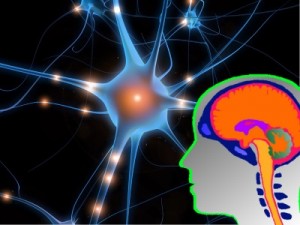There’s something I know about you that may shock you.
It’s something that is so crazy and off-the-wall strange that you might refuse to believe it.
And I wouldn’t blame you at all.
I hope you’re sitting down because here it is:
You have an extra brain.
Remember, I told you it was crazy? When I first heard of it I thought it was too. Until, that is, I found scientific evidence from a doctor that backed it up.
But what on earth has this to do with building my self-confidence?
Good question. Glad you asked.
Let’s start with discussing what exactly we’re talking about when we talk about self-confidence.
According to Wikipedia “Self Confidence” is described as:
Confidence comes from a Latin word ‘fidere’ which means “to trust”; therefore, having self-confidence is having trust in one’s self.
Trust is a huge factor in building self-confidence and I’ll have more to say about it in a minute. But first let’s be clear on what we’re talking about.
In my view there are two kinds of self confidence:
- Work Mastery – This is confidence that comes from having a high degree of proficiency at a task. This could be anything from playing a musical instrument to being an expert at landscaping. Most people who have been at a job, profession, or doing any particular thing for a long time have this type of confidence.
- Social Serenity – This is when you feel comfortable when communicating, working, or just being around other people. You have a comfort level that draws people toward you because you seem sure of yourself and what you stand for. This is generally the most sought after type of confidence.
Obviously the first type of confidence, Work Mastery, is the most common so for our purposes here we’ll be referencing the second type, Social Serenity, whenever the word “confidence” is mentioned.
If you go online you’ll find a number of remedies for low self esteem or lack of confidence. You’ll see free tips to get you started on building your self confidence. Almost all of them will tell you that it will take persistence to get the job done. In other words, their message is: It will be a long long road.
So, you might see results after you’ve completed the course, read the books, attended the seminar, and contemplated your existence while sitting quietly in a lotus position on a mat by yourself for twenty minutes a day over six weeks or so.
But here’s the good news: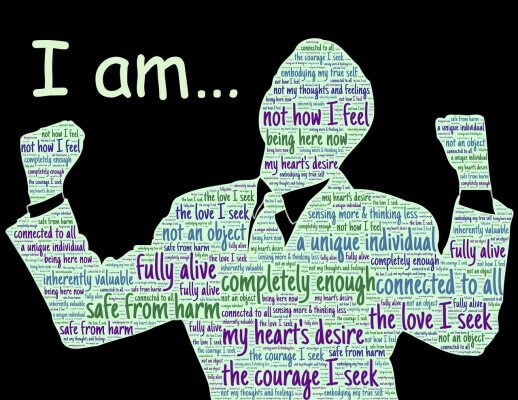
- feeling good about yourself
- having a sustained self esteem
- finding the strength that you can trust yourself
- feeling confident in your abilities
All the above becomes quickly possible, or not, depending if you are
- Aware that you have a second brain in your gut that can be optimized to work with the one brain you’re familiar with, AND
- That both of these different brains can be optimized to work together to give you more pronounced insights.
Remember you have not just one but two very different brains in your body.
As a human being you do two things everyday all day: you think things and you feel things.
And now we know you have a separate brain for each of those two tasks. The one in your head is a thinking brain but it can’t feel anything. There are no pain receptors in the cortex at all.
The other one is in your gut. It’s much smaller but it’s not designed for thinking much. It’s a feeling brain. It feels everything from your greatest joys to your deepest sorrows… and everything in between.
It’s extremely sensitive to pressure. Which is how it does it’s job of managing the complicated work of the digestion process so incredibly well. Of course, that’s not all it does.
If you want to speed up the process to building self-trust and be blessed with an immutable confidence on an ongoing basis your second brain (AKA: your gut brain) is the place to go.
Now, in case your wondering, we’re not going to abandon the head brain. Certainly not. We need both brains working in concert to be able to think and feel at the same time. That way we can experience the good vibes of the gut brain and use that to suppress the noise that the head brain is in the habit of creating. That way we can check the decisions we’re thinking about while, at the same time, see how we feel about them before we put them into action. I call this…
Collaborative Intelligence 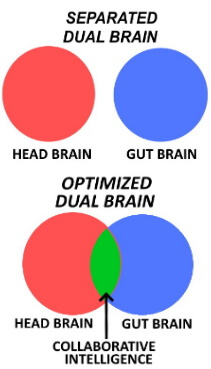
But why do we need this?
One big reason is to distance yourself from all the negative self talk that’s holding you back. Remember, it’s critical that you need to see that you can trust yourself. That you’re worthy of success. To arrive there means that you must first build a rock-solid self belief. If you can do this your self confidence will soar.
The big question, of course, is how?
The key is to know the truth. The truth that you have been successful your entire life. That kind of truth is powerful stuff. But it’s only found by examining the one thing that backed your success in any achievement you’ve ever had. It’s called your GRIT (better known as the gut drive of persistence).
I have two acronyms that I want you to remember from now on.
- GRIT — Gut Recall Increases Traction
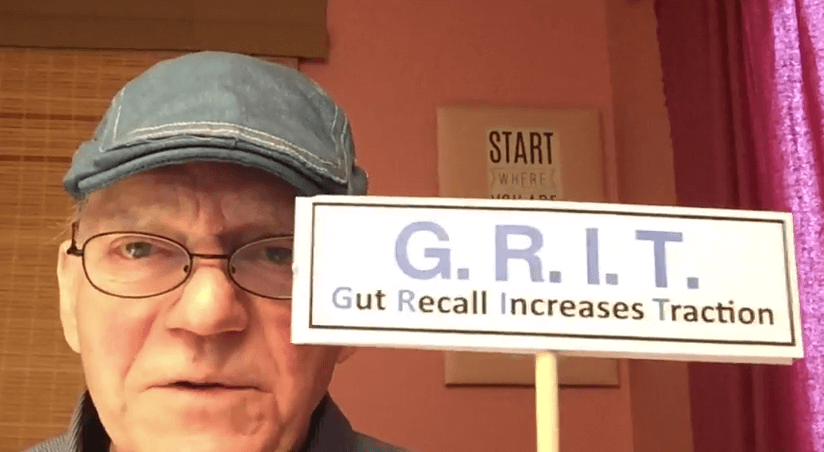
- GRIT — Gut R ecognizes Internal Truth
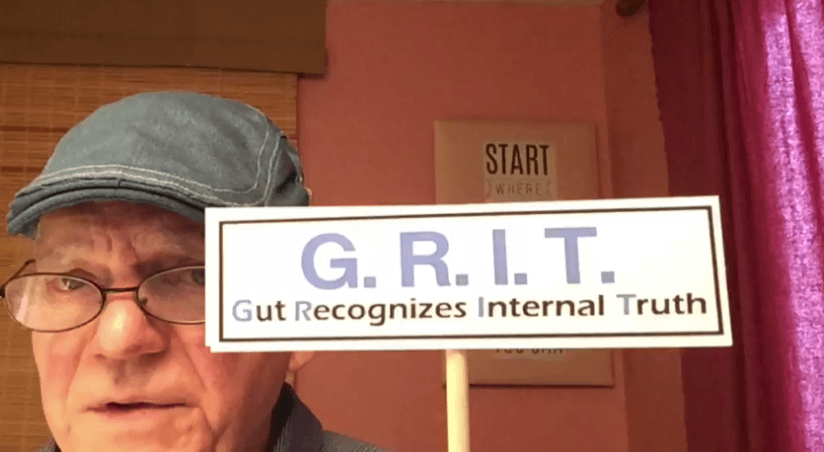
Why are these important? Because of a critical finding made by researchers over forty years ago and reported in a book which sold over three million copies back in 1978. It was titled “In Search of Excellence”. It appears that the old adage ‘Nothing succeeds like success’ turns out to have a sound scientific base…
Researchers studying motivation find that the prime factor is simply the self perception among motivated subjects that they are in fact doing well.
…mere association with past personal success apparently leads to more persistence, higher motivation, or something that makes us do better.
Ya, “something that makes us do better”. I love that. They didn’t have a clue as to what that “something” was but today, after all this time, the answer to that question is coming into focus. And you my friend are going to reap the greatest rewards because of it. That is because you now know about that extra brain in your gut. Knowing this can make a big difference in how you can develop a self confidence that never leaves you.
More power to you.
David


